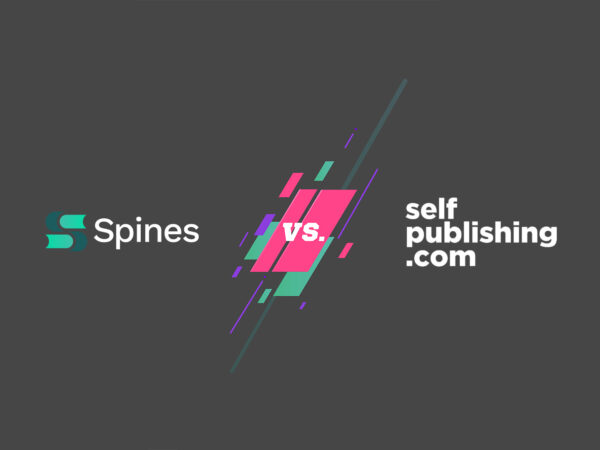Gone are the days when authors had to knock on the doors of publishing houses, hoping for a lucky break. Today, self-publishing platforms have completely rewritten the rules of the book industry—much like how a plot twist breathes new life into a story.
At the heart of this revolution lies the synergy between technology and creativity, giving power back to authors and making publishing accessible to everyone. Ready to dive into this world? Let’s explore how self-publishing platforms, paired with social media wizardry, are helping authors rise to success.
The Rise of Self-Publishing: A New Era for Authors
The rise of self-publishing has revolutionized the way authors approach the publishing process. With the advent of digital platforms and social media, self-published authors can now reach a wider audience and connect with readers directly. In this new era, authors have more control over their work and can make decisions about editing, formatting, cover design, and marketing.
Gone are the days when authors had to rely solely on traditional publishing houses to get their work out into the world. Today, self-publishing platforms have democratized the publishing process, allowing authors to take the reins of their writing careers. This newfound control means that authors can publish their work on their own terms, choosing everything from the cover design to the marketing strategies.
Your Publishing Journey Awaits – Start NowMoreover, social media has played a pivotal role in this transformation. Self-published authors can now leverage popular social media platforms to build their author brand, engage with their target audience, and drive book sales. Whether it’s sharing snippets of their writing process on Instagram Stories or running promotional campaigns on Facebook, social media has become an indispensable tool for modern authors. Pro Tip: Embrace the power of social media to connect with your readers. Share your writing journey, ask for feedback, and make your audience feel like they’re part of your story.
Understanding the Importance of Social Media for Self-Published Authors
In the digital age, social media platforms have become indispensable for self-published authors. These platforms offer a direct line to millions of potential readers, making it easier than ever to build a loyal following and boost book sales. By leveraging social media, authors can share updates, connect with their target audience, and promote their work in real-time. This not only increases their online presence but also helps in establishing a strong author brand. Imagine being able to share a sneak peek of your latest chapter or run a poll to choose your next book cover—all while engaging with readers who are genuinely interested in your work. The power of social media in self-publishing is undeniable, offering endless opportunities for authors to thrive.
The Power of Social Media in Self-Publishing: A Digital Playground for Authors
Self-publishing without social media? That’s like trying to write a novel without a pen. Social media platforms have become indispensable tools for self-published authors, giving them a direct line to their readers. In fact, 72% of authors who actively use social media say it’s their most powerful marketing tool (Statista, 2023).
From Instagram to Twitter, self-published authors are building communities, sharing writing journeys, and—most importantly—selling books. These platforms offer various marketing tools, such as book giveaways and promotional setups, that can enhance an author’s visibility. Whether it’s posting a sneak peek of a cover or running a poll to let readers vote on character names, social media is where authors can connect in real time.
Pro Tip: The real magic happens when you use social media as a dialogue, not a monologue. Talk to your audience, respond to their comments, and make them feel part of your writing journey.
Best Social Media Platforms for Authors: From Instagram to Goodreads
Choosing the right platform is like picking the best book title—it matters. For authors, not all social media platforms are created equal. Each has its unique audience and strengths.
- Instagram: A visual paradise, perfect for showing off book covers, short videos, and behind-the-scenes content. Don’t forget those captivating Instagram Stories!
- Facebook: With over 2.8 billion users, Facebook Groups offer thriving communities for every book genre imaginable, helping authors connect with readers and other writers.
- Twitter: Ideal for short-form content and direct interaction with fans. Use relevant hashtags to reach wider audiences.
- TikTok: Yes, TikTok! The #BookTok community is on fire, helping many authors—especially in YA and fantasy genres—reach viral fame.
And let’s not forget Goodreads, which offers its own Goodreads Author Program that lets authors connect with readers, post giveaways, and get book reviews. Goodreads also provides unique marketing tools such as book giveaways and promotional setups that can enhance an author’s visibility, linking Goodreads rankings and reviews to potential Amazon success.
Fun Fact: Did you know that the hashtag #BookTok has over 64 billion views on TikTok? Short-form videos are a great way to capture the attention of younger readers.
Choosing the Right Social Media Platform
Selecting the right social media platform is crucial for reaching your target audience and achieving your marketing goals. Each platform has its unique strengths and caters to different audience demographics. For instance, Instagram is a visual paradise, perfect for sharing eye-catching book covers and behind-the-scenes content. On the other hand, Twitter is ideal for real-time conversations and engaging with readers through short, impactful tweets. Facebook Groups offer a community feel, allowing authors to connect with readers and other writers in a more intimate setting. Goodreads, with its focus on books and reading, provides a dedicated space for authors to interact with avid readers and gather reviews. By understanding the unique features of each platform, self-published authors can tailor their social media strategy to maximize their reach and impact.
Crafting a Winning Social Media Strategy: The Secret Sauce to Success
Creating a social media strategy for your self-published book is like outlining a novel—it takes planning. Throwing out random posts won’t cut it. You need a consistent posting schedule, a mix of content (think blog posts, behind-the-scenes sneak peeks, guest posts, and giveaways), and, most importantly, relevant hashtags to reach the right audience.
To keep your audience engaged, use a combination of short form videos, polls, and questions to create interactive content. A steady stream of interaction helps you build a solid following, which is crucial for successful book marketing.
> Author Hack: Set up a content calendar to ensure you’re posting regularly. Try tools like Buffer or Hootsuite to streamline your social media efforts.
Creating a Content Calendar: Planning for Consistency and Engagement
A content calendar is a powerful tool for self-published authors to plan and organize their social media content. By creating a content calendar, authors can ensure consistency and engagement with their target audience. Here are some steps to create a content calendar:
- Identify Your Goals: Determine what you want to achieve with your social media content. Do you want to increase book sales, build your author brand, or engage with your audience? Clear goals will guide your content creation process.
- Choose Your Platforms: Select the social media platforms that align with your goals and target audience. For example, if your target audience is primarily on Instagram, focus on creating content for that platform. Each platform has its unique strengths, so choose wisely.
- Plan Your Content: Decide on the type of content you want to create, such as blog posts, social media posts, Instagram Stories, or videos. Make sure your content is relevant to your audience and aligns with your goals. Variety is key to keeping your audience engaged.
- Schedule Your Content: Use a calendar or planner to schedule your content in advance. This will help you stay organized and ensure consistency. Tools like Buffer or Hootsuite can streamline this process, allowing you to plan and automate your posts.
- Engage with Your Audience: Respond to comments and messages from your audience. Engage with them by asking questions, hosting giveaways, or running contests. Interaction is crucial for building a loyal following and driving engagement.
By creating a content calendar, self-published authors can plan and organize their social media content, ensuring consistency and engagement with their target audience. This strategic approach not only helps in maintaining a steady flow of content but also in building a strong author brand and driving book sales. Author Hack: Regularly review and adjust your content calendar based on the performance of your posts. This will help you refine your social media strategy and better connect with your audience.
Creating a Content Calendar: Planning for Consistency and Engagement
Building a Community on Social Media
Building a community on social media is like creating a fan club for your books. It’s where you can engage with your readers, share exclusive content, and foster a sense of belonging. Start by sharing engaging content that resonates with your audience—think behind-the-scenes looks at your writing process, character sketches, or even snippets of your upcoming book. Respond to comments and messages to show your readers that you value their input. Hosting giveaways or contests can also boost engagement and attract new followers. Platforms like Facebook Groups and Instagram Stories offer unique features to help you build and nurture your community. By creating a loyal following, you not only increase your online presence but also drive book sales and establish a strong author brand.
Your Publishing Journey Awaits – Start NowHow Social Media Connects You to Your Target Audience: Reach Readers Where They Are
Finding your target audience is like finding the right genre for your book—essential for success. Social media platforms allow authors to directly connect with their readers. Want to find out what your readers think of your new book title? Post a poll. Need to actively engage your audience before your book launch? Use Instagram Stories or Facebook Groups to build anticipation.
The beauty of social media is that it allows authors to connect directly with readers and create personal bonds. This relationship not only drives book sales but also builds author loyalty. An engaged audience is far more likely to share your content, leave reviews, and—yes—buy more books.
> Pro Tip: Use audience demographics to tailor your content. If you’re targeting a younger audience, short-form content like TikTok and Instagram Reels are gold.
Building an Author Brand: More Than Just a Name
Creating your author brand on social media is akin to building the world in your book—it defines how readers perceive you. Consistency is key. Your tone, cover images, and even the hashtags you use should reflect the essence of your writing.
Building a solid following takes time, but once you have it, the rewards are endless. A strong author brand can help boost book sales, attract new readers, and even land you guest appearances on blogs or podcasts. It’s not just about selling a book—it’s about creating a lasting impression.
> Did You Know? Authors who invest in personal branding and social media marketing report a 47% increase in book sales within the first year (Forbes, 2023).
Social Media Management and Analytics
Managing your social media accounts and tracking your marketing efforts are essential for optimizing your social media strategy. Tools like Buffer and Hootsuite can help you schedule posts, manage multiple accounts, and streamline your workflow. Analytics tools provide valuable insights into audience demographics, engagement rates, and conversion rates. By monitoring these metrics, you can identify what types of content resonate most with your audience and adjust your strategy accordingly. For example, if you notice that your Instagram Stories are getting high engagement, you might decide to post more behind-the-scenes content. Understanding your analytics helps you refine your social media strategy, ensuring that your marketing efforts are as effective as possible.
Driving Book Sales with Social Media: Turning Likes into Purchases
Now, let’s get to the heart of the matter—book sales. How can you turn your social media followers into paying customers? The secret is in social media campaigns designed to convert. Think book giveaways, Amazon reviews, and offering sneak peeks that leave readers wanting more. Goodreads offers unique marketing tools, including advertising capabilities that can enhance an author’s visibility through targeted book giveaways and promotional setups.
Platforms like Goodreads and Facebook Groups are also excellent for generating buzz. And don’t underestimate the power of email marketing—building an email list from your followers can offer more direct and long-term marketing opportunities.
Success Story: Many self-published authors on platforms like Spines have leveraged social media to double their book sales in just a few months by running strategic giveaways and tapping into their audience’s excitement.
Overcoming Common Challenges on Social Media
Navigating the world of social media can be challenging for self-published authors. Common hurdles include building a following, creating engaging content, and managing your online presence. To overcome these challenges, consistency is key. Stick to a regular posting schedule to keep your audience engaged. Engage with your followers by responding to comments, asking questions, and participating in conversations. Providing value through your content—whether it’s writing tips, book recommendations, or exclusive previews—can also help you stand out. Social media management tools can streamline your workflow, making it easier to stay on top of your posting schedule and track engagement metrics. Additionally, joining online communities and collaborating with other authors can expand your network and increase your visibility. By addressing these challenges head-on, you can build a strong and effective social media presence.
The Flip Side of Social Media: Why You Shouldn’t Rely on a Single Platform
While social media is a fantastic tool, it’s risky to rely on just one platform for your marketing efforts. What if your chosen platform changes its algorithm or—even worse—shuts down? The key to a successful author brand is diversification. Use multiple platforms to build a well-rounded presence.
> The Bottom Line: You wouldn’t put all your characters in one plot twist, so don’t put all your marketing energy into one social media platform. Spread out your efforts for steady traffic.
The Spines Revolution: Making Publishing Easy for Authors
If you’re ready to take your writing career to the next level, Spines is here to help. We believe in empowering authors through a streamlined publishing process, using AI technology and expert support to ensure your book reaches its fullest potential.
Your Publishing Journey Awaits – Start NowWith Spines, you can go from manuscript to published book in under 30 days—no more waiting for months. Whether you need eBook, audiobook, or print-on-demand services, we’ve got you covered. Our intuitive dashboard makes the entire process seamless, even if you’re new to self-publishing.
Ready to start your self-publishing journey? Sign up for free and discover why thousands of authors trust Spines to bring their stories to life.
> Join the Revolution: Don’t let traditional publishing slow you down. Let Spines help you turn your manuscript into a masterpiece—fast.
The Future of Self-Publishing Is Bright
Social media and self-publishing platforms are a match made in literary heaven. With the right strategy and tools, authors can build brands, connect with readers, and drive book sales like never before. Whether you’re sharing updates on Instagram or building community on Facebook, the opportunities are endless.
At the forefront of this revolution is Spines, helping authors bring their stories to life with speed, affordability, and a global reach. The future of publishing is in your hands—are you ready to start writing your success story?








